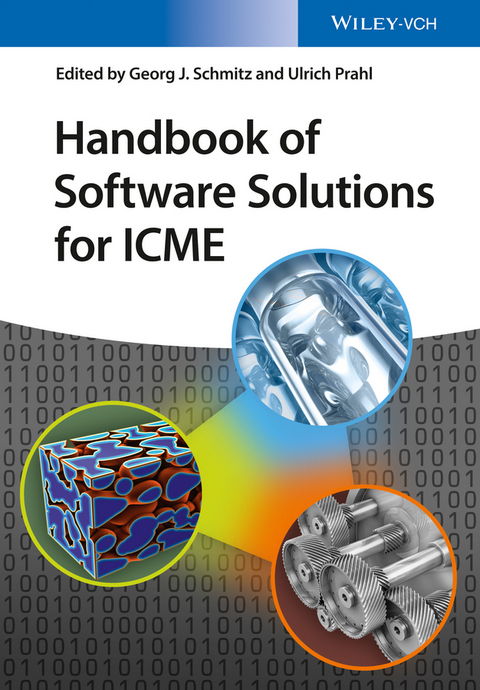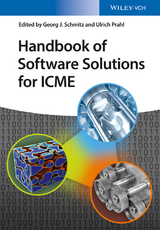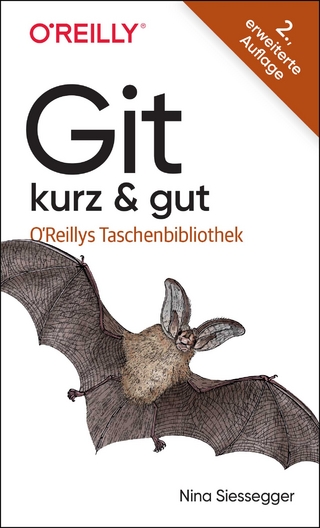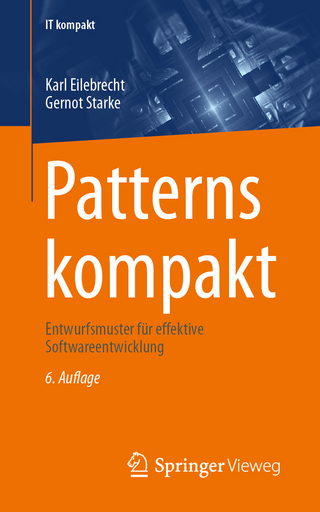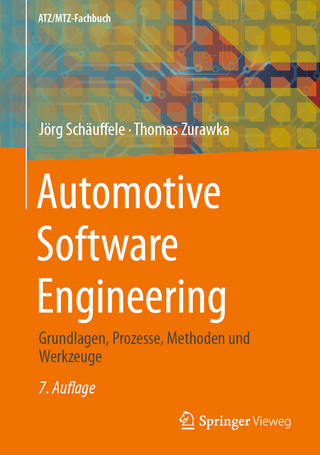Handbook of Software Solutions for ICME
Wiley-VCH (Verlag)
978-3-527-33902-0 (ISBN)
Dr.rer.nat. Georg J. Schmitz obtained his PhD in Materials Science in 1991 from RWTH Aachen University in the area of microstructure control in high temperature superconductors. At present he is senior scientist at ACCESS e.V., a private, non-profit research center at the RWTH Aachen University. His research interests comprise microstructure formation in multicomponent alloys, modeling of solidification phenomena, phase-field models and thermodynamics. He is the official agent for Thermo-Calc Software AB in Germany and provides global support for MICRESS®. Dr. Schmitz is the coordinator of the European "Integrated Computational Materials Engineering expert group - ICMEg". He has been appointed as expert by several institutions and is active member of the TMS committee on Integrated Computational Materials Engineering "ICME" and of the European Materials Modelling Council EMMC. He is editor and reviewer for a number of journals and has published more than 150 scientific articles and - jointly with Dr. Prahl - edited a recent book on a platform concept for ICME. Ulrich Prahl received his Dr.-Ing. in Mechanical Engineering in 2002 from RWTH Aachen University on the area of damage and failure prediction of high-strength fine-grain pipeline steels. This work has been performed in the framework of the joined program "Integrative Material Modelling" which aimed the development of materials models on various length scales. Since 2002 he is working as senior scientist at the department of ferrous metallurgy at RWTH Aachen University where he is heading the scientific working group "Material Simulation". He is coordinator in the AixViPMaP project, which aims the definition of a modular integrative platform for the modelling of material processes on various length scales along the entire process chain, as well as editor of the journal Integrated Materials and Manufacturing Innovation. Dr. Prahl has authored and co-authored more than 180 scientific articles and - jointly with Dr. Schmitz - edited a recent book on a platform concept for ICME.
INTRODUCTION
Motivation
What Is ICME?
Industrial Needs for ICME
Present ICME
PROCESSES AT THE COMPONENT SCALE
Overview of the Production Chain
Primary Shaping Processes
Forming Processes
Annealing Processes
Joining Processes
Coating Processes (Thick Films)
Deposition Processes (Thin Films)
Machining Processes
Fatigue
Corrosion Processes
Recycling/Metallurgy
MICROSTRUCTURE EVOLUTION
THERMODYNAMICS
DISCRETE MODELS
DETERMINATION OF EFFECTIVE PROPERTIES
NUMERICAL METHODS
PLATFORM APPROACHES/ PRESENT ICME
ROADMAPS FOR FURTHER DEVELOPMENTS
| Erscheinungsdatum | 10.11.2016 |
|---|---|
| Verlagsort | Berlin |
| Sprache | englisch |
| Maße | 170 x 244 mm |
| Gewicht | 1463 g |
| Themenwelt | Mathematik / Informatik ► Informatik ► Software Entwicklung |
| Naturwissenschaften ► Chemie | |
| Technik ► Elektrotechnik / Energietechnik | |
| Technik ► Maschinenbau | |
| Schlagworte | Computer Science • Festkörpermechanik • Informatik • Maschinenbau • Materials Science • Materialwissenschaften • Materialwissenschaften / Theorie, Modellierung u. • Materialwissenschaften / Theorie, Modellierung u. Simulation • mechanical engineering • Software • Software engineering • Software-Engineering • solid mechanics • Theory, Modeling & Simulation • Theory, Modeling & Simulation |
| ISBN-10 | 3-527-33902-7 / 3527339027 |
| ISBN-13 | 978-3-527-33902-0 / 9783527339020 |
| Zustand | Neuware |
| Haben Sie eine Frage zum Produkt? |
aus dem Bereich
